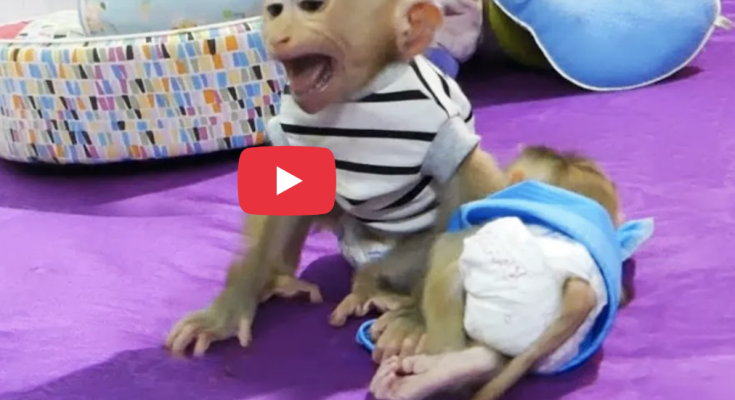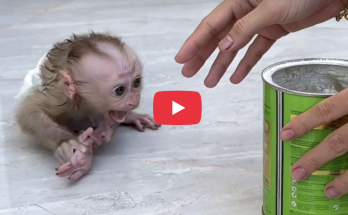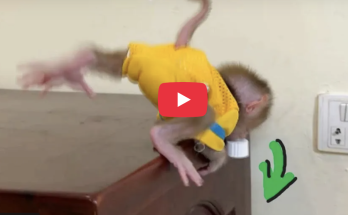Certainly! Here’s a 500-word article based on the provided title, along with a new, more engaging title.
Original Title:
Lil Brat Moly Sharply Crying & Angry Mom Not Allow Him Grab Pacifier
New Title:
Toddler Moly Gets Frustrated and Cries as Mom Refuses to Give Him His Pacifier
Article:
Parenting young children often involves managing their needs, desires, and emotions in real-time. Toddlers, in particular, are known for their expressive and sometimes challenging behaviors as they navigate their growing independence. One common scenario many parents face is a toddler’s insistence on having a pacifier, especially when they’re upset or seeking comfort. This was the case with little Moly, whose strong emotions led to sharp crying and frustration when his mom refused to give him his pacifier.
Moly, a lively and spirited toddler, had been feeling distressed. Perhaps he was tired, teething, or simply seeking reassurance, which made his desire for his pacifier intense. When his mother gently told him that he couldn’t have the pacifier at that moment, Moly’s reaction was immediate and emotional. He started crying loudly and became visibly upset, expressing his frustration through sharp cries and protests.
This scenario highlights a common parenting challenge: balancing a child’s emotional needs with safety, boundaries, or health considerations. Parents often refuse to give a pacifier for various reasons—such as preventing dental issues, encouraging speech development, or establishing limits. However, it’s equally important to acknowledge the child’s feelings and respond empathetically.
In this instance, Moly’s mother recognized his distress and understood that his reaction was a normal part of toddler development. Toddlers often have difficulty managing their emotions, and crying is their primary way of expressing frustration. Instead of giving in immediately, effective parenting involves comforting the child while gently setting boundaries. For example, the mother might have explained, in simple terms, why Moly couldn’t have the pacifier right now, offering reassurance and alternative comfort measures.
Parents can help children cope with such feelings by offering distraction, cuddles, or other forms of reassurance. For instance, she could have offered Moly a favorite toy, sung a soothing song, or simply held him close to help him feel safe. Validating his feelings—telling him it’s okay to feel upset—can also help him learn emotional regulation skills over time.
This situation also underscores the importance of patience and consistency. While it’s natural for toddlers to become upset when denied something they want, responding with calmness and understanding teaches them healthy ways to express their feelings. Over time, children learn that their emotions are accepted, even when their desires are not immediately fulfilled.
Parenting a toddler involves navigating these emotional outbursts with love and patience. It’s essential for caregivers to remain calm, set gentle but firm boundaries, and provide comfort. Such moments are opportunities for teaching children about boundaries, emotional regulation, and trust.
In conclusion, Moly’s sharp crying and frustration when denied his pacifier are typical toddler reactions. With empathetic responses and consistent boundaries, parents can help their little ones manage their feelings and develop healthy emotional skills. While challenging in the moment, these experiences are valuable lessons for both children and parents in building a trusting and understanding relationship.
If you’d like any adjustments or a different tone, just let me know!



